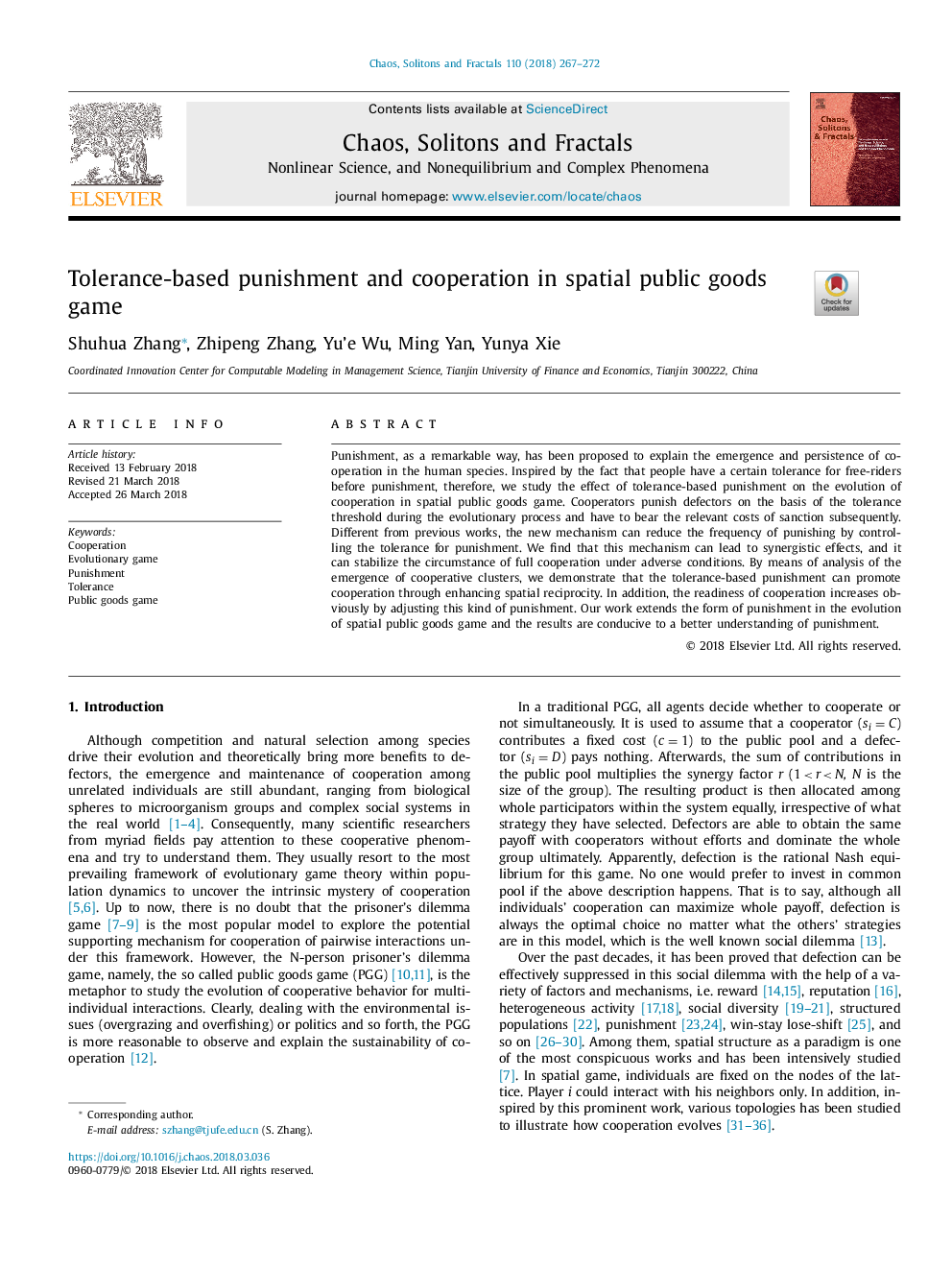ترجمه فارسی عنوان مقاله
مجازات مبتنی بر تحمل و همکاری در بازی کالاهای عمومی فضایی
عنوان انگلیسی
Tolerance-based punishment and cooperation in spatial public goods game
| کد مقاله | سال انتشار | تعداد صفحات مقاله انگلیسی |
|---|---|---|
| 126697 | 2018 | 6 صفحه PDF |
منبع

Publisher : Elsevier - Science Direct (الزویر - ساینس دایرکت)
Journal : Chaos, Solitons & Fractals, Volume 110, May 2018, Pages 267-272
ترجمه کلمات کلیدی
همکاری، بازی تکامل یافته، مجازات، تحمل، بازی کالاهای عمومی،
کلمات کلیدی انگلیسی
Cooperation; Evolutionary game; Punishment; Tolerance; Public goods game;
ترجمه چکیده
مجازات، به عنوان یک راه قابل توجه، برای توضیح ظهور و ماندگاری همکاری در گونه های انسانی پیشنهاد شده است. بنابراین، با الهام از این واقعیت است که مردم قبل از مجازات تحمل خاصی برای سوادکاران دارند، بنابراین، ما اثر مجازات مبتنی بر تحمل را بر تکامل همکاری در بازی کالاهای عمومی فضایی بررسی می کنیم. همکاران متخلفان را بر اساس آستانه تحمل در روند تکاملی تنبیه می کنند و پس از آن باید هزینه های مربوط به تحریم را بپردازند. متفاوت از آثار قبلی، مکانیزم جدید می تواند فرکانس مجازات را با کنترل تحمل مجازات کاهش دهد. ما دریافتیم که این مکانیزم می تواند منجر به اثرات هم افزایی شود و می تواند شرایط همکاری کامل را تحت شرایط نامطلوب تثبیت کند. با تجزیه و تحلیل ظهور خوشه های همکاری، ما نشان می دهیم که مجازات مبتنی بر تحمل می تواند از طریق ارتقاء روابط مکانی میانجامد. علاوه بر این، آمادگی همکاری با افزایش این نوع مجازات به طرز چشمگیری افزایش می یابد. کار ما به شکل مجازات در تکامل بازی کالاهای عمومی فضایی گسترش می یابد و نتایج به درک بهتر از مجازات کمک می کند.

